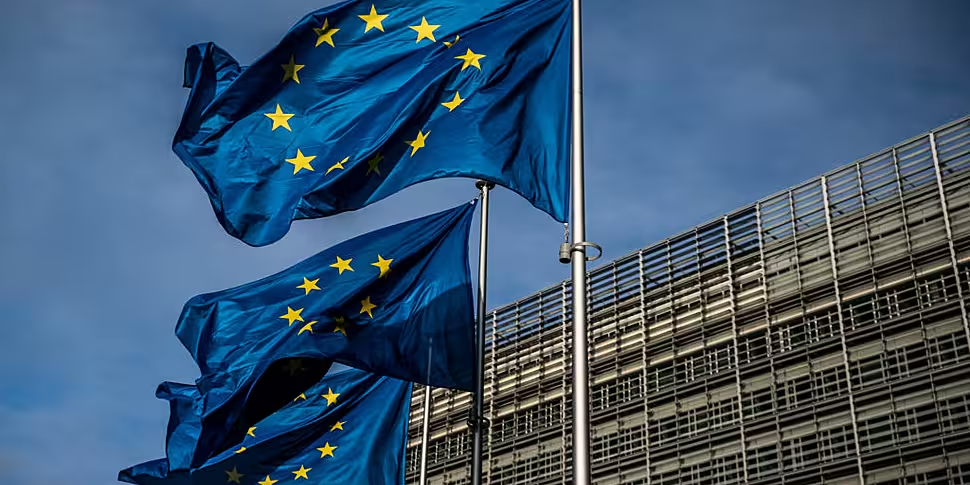A professor on European integration says Ireland could have €15bn 'immediately' to help with our COVID-19 recovery, if the Government accepted the European Commission judgement in the Apple case.
Ireland is to receive just €1.9bn of the European Commission rescue plan to help economies after the coronavirus.
The fund is worth a total of €750bn - with Italy to receive €81.8bn, and €77.3bn going to Spain.
Professor John O'Brennan is Jean Monnet Professor of European Integration at Maynooth University.
He told Pat Kenny while the Irish figure looks small, it is still up for negotiation at a European Council summit in June.
"Remember this is a plan, it has to be signed off by all member states at the summit.
"I think we're going to see a lot of bargaining, digging into granular detail and - as is always the case where EU money is concerned - there are going to be disagreements.
"But I don't disagree with you when you say that the figure for Ireland is pretty small and paltry.
"But just to explain that the calculations are based on a complex formula of indicators.
"These include the size of the member state economy, the relative share of that member state in the wealth of the EU - and Ireland is a very wealthy state in comparative terms - how badly hit we've been by COVID-19, and the relative need and capacity of each member state to respond to the crisis".
"The basis of the calculations here Pat is the normal EU budget - and what this is going to do is to add to the seven year EU budget, which will kick off next year."
"We should say that these are contingent, they are up for negotiation."
A two year investigation by the European Commission concluded in 2016 that the Irish State allowed tech giant Apple to pay far less tax than other companies.
It ordered the company to pay over €13bn back taxes and interest to Ireland to make up for the shortfall.
The money is being held in an escrow account until the appeals process has concluded.
On this, Prof O'Brennan said: "The Government could do a lot if it's unhappy with this, by simply accepting the judgement of the European Commission in the Apple case - and we would have €15bn immediately delivered to Merrion Street to help with our recovery.
"We can make choices here, but remember that other member states have their interests and all of this is in the mix as these negotiations go on down to the European Council in June".
But he also acknowledged that in the wider picture, factoring in debt burdens and other issues, "Ireland is not doing particularly well out of this.
"For example, Hungary is set to receive about €8bn from this plan, Bulgaria - about seven million population - about €9bn.
"So I think it's certainly that we're not coming out of this all that well.
"But that is also the case for other wealthy states like the Netherlands, which is going to receive about €4bn in total in grant form.
"But again there's three weeks of very, very hard negotiations before we get to the point where leaders may or may not agree on this".
He said infection and death rates from COVID-19 on countries is not the only consideration.
"It's one thing to talk about how particular regions of the EU have been impacted in terms of public health.
"But actually it's a very different thing for the economy.
"Eastern Europe for example, from the Baltic states right down to Bulgaria, has been vastly less affected by the crisis - Bulgaria's had only about 150 people die.
"But the impact on their economy has been extraordinary because just like us, they've had to shut down entirely over the last 10 weeks".
The plan is to raise money by temporarily lifting each state's own resources ceiling to 2% of EU Gross National Income, allowing the European Commission to use its credit rating to borrow €750bn on the financial markets.
This additional funding will be channelled through EU programmes and repaid over a long period of time throughout future EU budgets: not before 2028 and not after 2058.
European Commission President Ursula von der Leyen said: "The recovery plan turns the immense challenge we face into an opportunity, not only by supporting the recovery but also by investing in our future: the European Green Deal and digitalization will boost jobs and growth, the resilience of our societies and the health of our environment.
"This is Europe's moment. Our willingness to act must live up to the challenges we are all facing."









